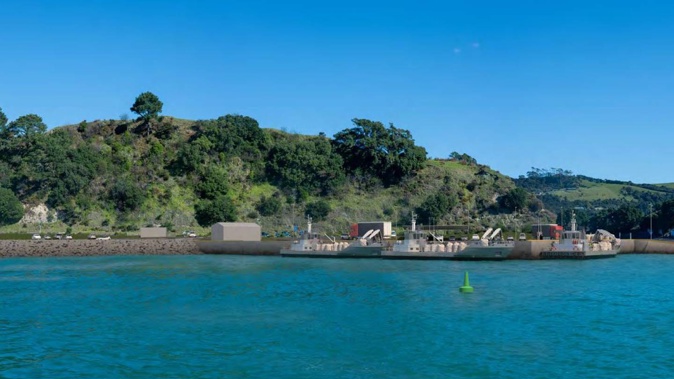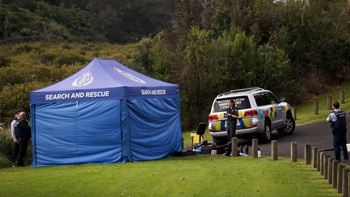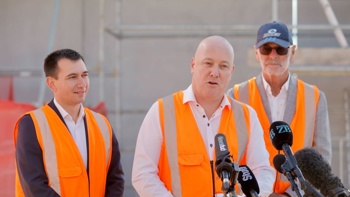
A $700,000 loan for aquaculture research in the Bay of Plenty will create six new marine sector jobs.
Economic and Regional Development Minister Stuart Nash spoke at the University of Waikato Tauranga Campus this afternoon, announcing the investment into specialist scientific diving business Deep Dive Division.
Deep Dive Division founder Tua Karalus told the Bay of Plenty Times funding would allow the company to "push forward" with aquaculture projects across the region through the purchase of a new vessel and decompression chamber.
Nash said it would also create six new full-time roles including an operations manager, divers and supervisors.
Deep Dive Division also signed a Memorandum of Understanding with the University of Waikato today to research the commercial viability of seaweed species.
The company would carry out planting and cultivation of seaweed underwater, while the university would take the lead on researching those species.
Nash said the government's goal was to grow the aquaculture industry to reach $3 billion in annual sales by 2035 and have a skilled workforce to support it.
He said the Regional Strategic Partnership Fund loan was a "strategic investment in a specialist high-value sector" and supported a $1.4 million expansion project for the company.
"There is a shortage of expertise and vessels to provide marine services and specifically, install lines for seaweed farming and Deep Dive has the expertise to fill this gap," he said.
"It will use the funding to purchase a 20-metre vessel to expand its core marine servicing operations and buy a decompression chamber to expand the company's ability to work at a depth below 30m."
- Government announces strategy for aquaculture industry
- Aquaculture sector to receive $210k funding boost
He said Deep Dive was the only Māori and Pasifika-owned commercial and scientific dive company in Aotearoa New Zealand and had a passion for "keeping Aotearoa marine specialists at the forefront of the local aquaculture industry".
"We are investing in the future wellbeing of our regions with a company that is committed to positive social and environmental impact," he said.
"This project will create rewarding and exciting job opportunities in our regional communities and support a sustainable aquaculture value chain."
Karalus said he was "excited" about the funding as it would enable the company to "push forward" with aquaculture projects through purchasing "key assets".
This included a vessel allowing them to undertake aquaculture jobs, installation of seaweed farms and work in the open ocean.
"There is a shortage of purpose-built vessels for aquaculture here in New Zealand. When something needs to be done it's hard to lease the right vessel for the right job - hence why we need it."
Karalus, also a commercial diver and environmental scientist, said the majority of their work would be carried out across the Bay of Plenty and in the Firth Of Thames.
He said while seaweed farming had been around for "many years and generations, the benefits around it were only now getting exposure in New Zealand.
Benefits included it being a source of protein, its ability to clean water and sequester carbon and certain species had medicinal properties, he said.
Take your Radio, Podcasts and Music with you









